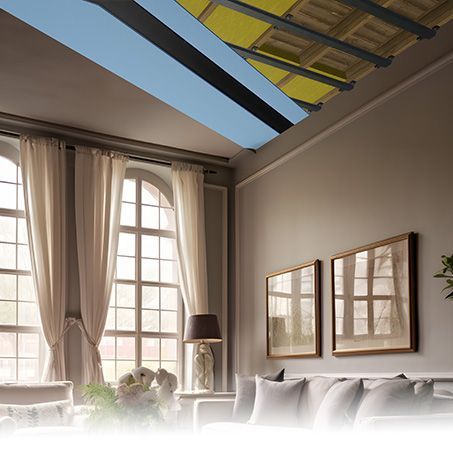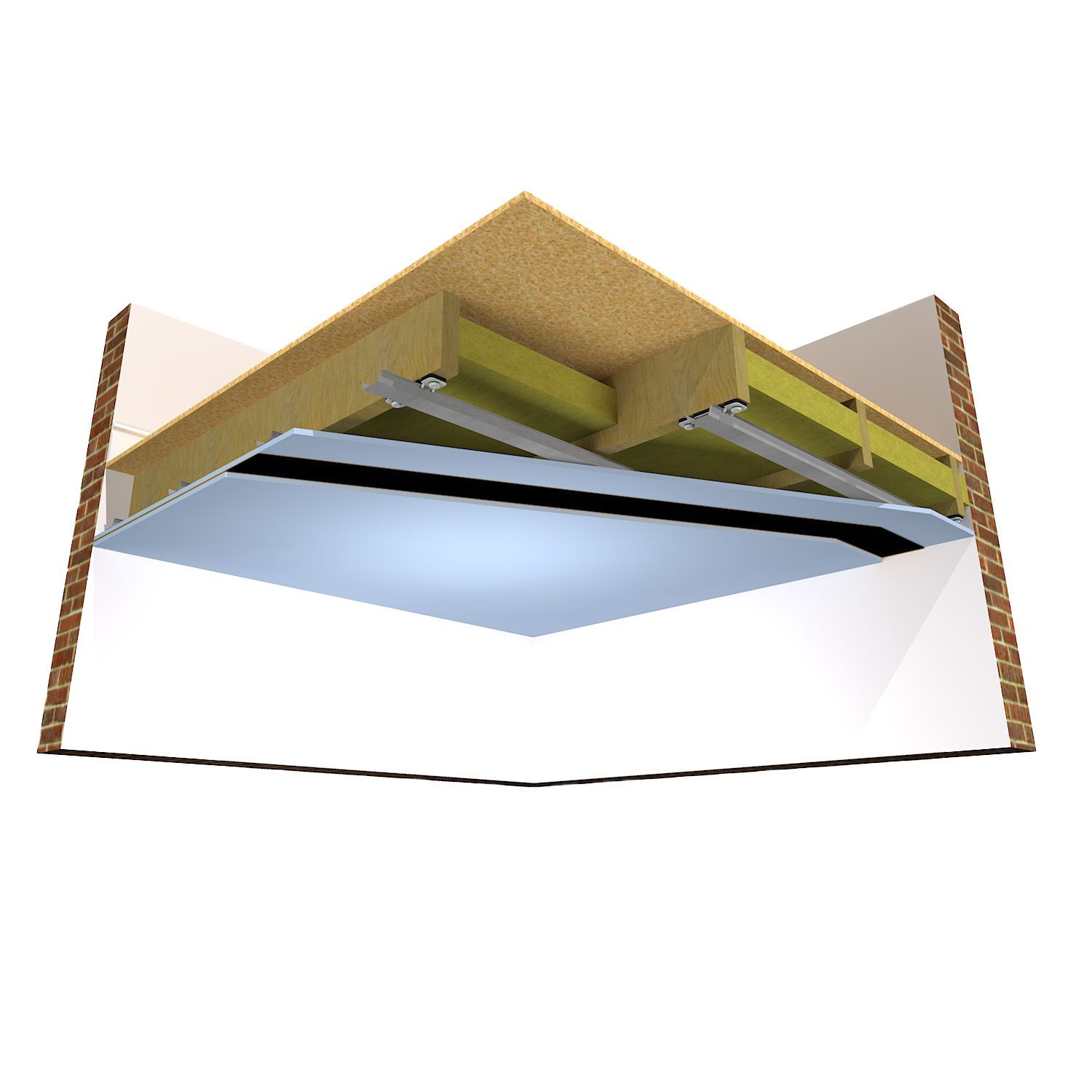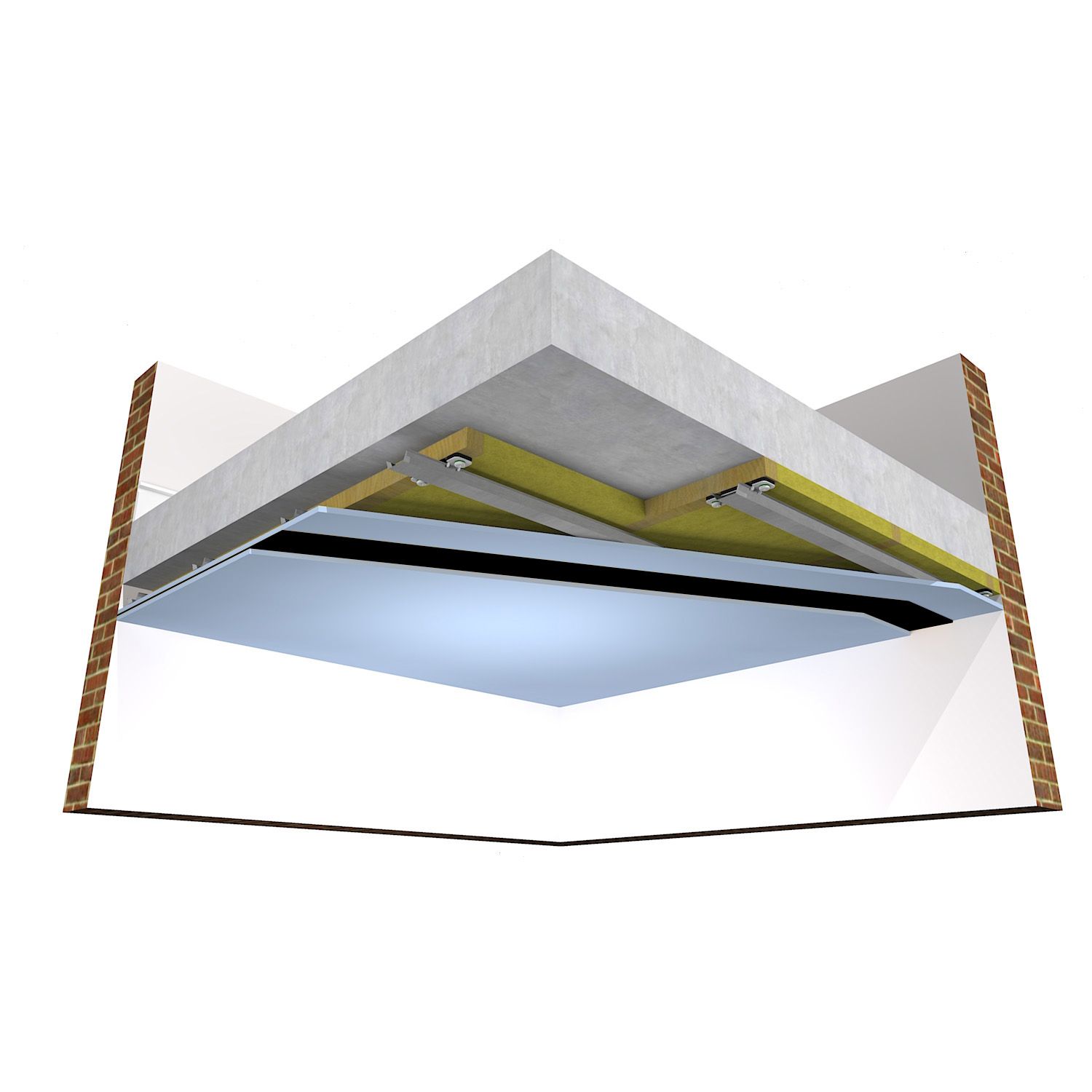What type of ceiling are you soundproofing ?
How To Soundproof A Timber Joist Ceiling
How to soundproof a ceiling from noise from above
To soundproof a ceiling, isolate soundproofing layers from the existing ceiling. When impact vibrations such as footsteps or moving furniture occur from above, the vibration energy travels straight through the floor above to the ceiling below.
Adding resilience to the ceiling allows the ceiling to flex and dampen the vibration (similar to how the suspension springs in a car help to absorb bumps in the road).
Add high mass layers to block airborne sound, using different types of mass to block different frequencies of sound.
For timber ceilings reduce the amplification of sound within the sealed cavity between the floor above and ceiling by adding acoustic mineral wool between joists.
The ultimate solution for blocking unwanted noise through a ceiling is the ReductoClip Ceiling System.
The 4 main principles of ceiling soundproofing:
Isolation
Sound is a physical energy that can travel through solid materials.
Isolating or 'decoupling' the ceiling from the floor above creates a breaker to stop that energy from easily transmitting through the structure
Damping
Elastic or damping materials help to absorb sound energy and vibrations.
Similar to how the suspension springs in a car help to absorb bumps in the road
Mass
The addition of mass helps to create a barrier to block sound waves. The more mass on the isolated surface the better the sound reduction.
Using different types of mass helps to block different frequencies of sound
Insulate Cavities
Add acoustic mineral wool within the ceiling and floor cavity. This helps to prevent sound resonating and amplifying within this sealed chamber
We don’t expect you to become an overnight soundproofing expert, that’s what we’re here for.
Soundproofing Ceilings FAQs
Visit the Knowledge Hub for more in depth info about how soundproofing works














